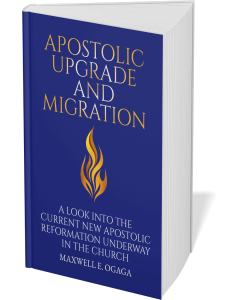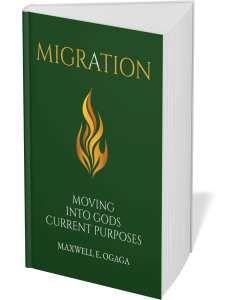Revival or Rewind? A Deep Dive Into Latter Rain Theology: I’ve always had a soft spot for steady, grounded faith—not the kind that moves you with glitter, but one that holds fast to the Scriptures. Recently, I took a deep dive into Albert James Dager’s “An Examination of Kingdom, Dominion, and Latter Rain Theology” (1986) and emerged with a richer understanding—more historical layers to peel back, more theological caution flags to wave.
Buckle up, truth-seeker—let’s stroll through the history, doctrines, and modern echoes of this theological tapestry.
1. The Roots: A Revival with Roots in the 1948 Latter Rain
This story starts post–World War II, around 1947–48, when a hunger for spiritual renewal gave rise to the Latter Rain Movement—sprouting from the Pentecostal “Sharon Orphanage and Schools” in North Battleford, Saskatchewan, Canada. Numerous leaders—Kevin Conner, Violet Kitely, George Warnock, and others—began emphasizing, Revival or Rewind? A Deep Dive Into Latter Rain Theology
- A restored five-fold ministry: apostles, prophets, evangelists, pastors, teachers (Ephesians 4:11).
- Eschatological optimism over pessimism—“the Church as victorious, not waiting out the end times.”
Assemblies of God, concerned by such deviations, officially rejected several of the Latter Rain’s practices, especially prophecy-through-laying-on-hands and the Manifest Sons doctrine.
2. Kingdom Theology: The Dramatic Premise: Revival or Rewind? A Deep Dive Into Latter Rain Theology
Here’s where things deepen. Dager peels back the layers of what he calls Kingdom Theology—a broad canopy under which various offshoots cluster: (Revival or Rewind? A Deep Dive Into Latter Rain Theology
- Foundational idea: Humanity lost dominion at the Fall.
- The church (or an elite “overcomer” faction) must reclaim dominion under modern apostles and prophets—establishing control over education, politics, science, etc.
- Belief that all authority now granted to Jesus is shared with believers by virtue of the Spirit, enabling them to speak realities into existence (think Word-Faith).
- Rejection of traditional dispensationalism, including the concept of a pre-tribulation Rapture or restoration of national Israel.
In essence: Christ only returns after the Church has ratcheted the world into submission.
3. Dominion Theology & Manifest Sons of God: Theological Overdrive
This takes the Kingdom idea and turns it up several notches:
- Manifest Sons of God theology—most modern expression—teaches overcomers will become immortal, sinless, even divine-like before Christ returns.
- John Robert Stevens (The Walk / Living Word Fellowship) is one such fiery proponent—claiming apostolic authority, dabbling in non-normal church practices, and cultivating authoritarian structures.
- Dager points out how quickly that path became cultic.
Dager, with palpable reluctance, weighs these developments with a heavy heart, hesitant to mislabel leaders he might respect—yet knowing Scripture must come first.
4. From Then to Now: The Modern Echoes: Revival or Rewind? A Deep Dive Into Latter Rain Theology
Dager didn’t write in isolation. The legacy lives on:
- Kingdom Now Theology—a modern version of Dominion Theology—borrows heavily from Latter Rain and restorationist ideas.
- Submission to modern apostles and prophets, and an insistence on church-led dominion, is central.
- It’s part of the wider New Apostolic Reformation, which elevates spiritual hierarchy and claims ongoing apostolic authority.
- The Seven Mountains Mandate (an offshoot of Dominion thinking)—the push to “Christianize” seven societal spheres—government, education, media, arts, family, business, religion—this is the theological root of modern movements entwined with politics.
5. Why It Still Matters—Especially Now
- Scripture vs. Strategy: Charisma can feel impressive—but should never outshine obedience to Scripture.
- Seductive Power: This isn’t just theology—it’s charisma wrapped in political ambition. That’s a heady cocktail.
- Discernment: “Test the message . . . test the messenger”—Dager’s solemn warning still rings out today.
Summary
Element What It Means
- Latter Rain (1948 revival): Restoring five-fold ministry, victorious eschatology.
- Kingdom Theology: Church regains earthly dominion; no Rapture until then.
- Manifest Sons of God: “Perfected” believers take control.
- Modern Dominion: (Kingdom Now) New Apostolic hierarchy, societal mandate, Seven Mountains thinking.
- Dager’s Warning: Loyalty to Scripture precedes loyalty to personalities or movements.
In an age hungry for revival, we must remember: revival that defies Scripture is no revival at all. History shows that the boldest claims aren’t always the most biblical—and discernment trumps drama every time.
Let me know if you’d like to spotlight any of the modern figures, or unpack how this theology intersects with current events. I’m here—traditional, thoughtful, yet progressive and always ready to dig a little deeper. Leave a comment below, to throw me into gear to do some more research.
Revival or Rewind? A Deep Dive Into Latter Rain Theology




